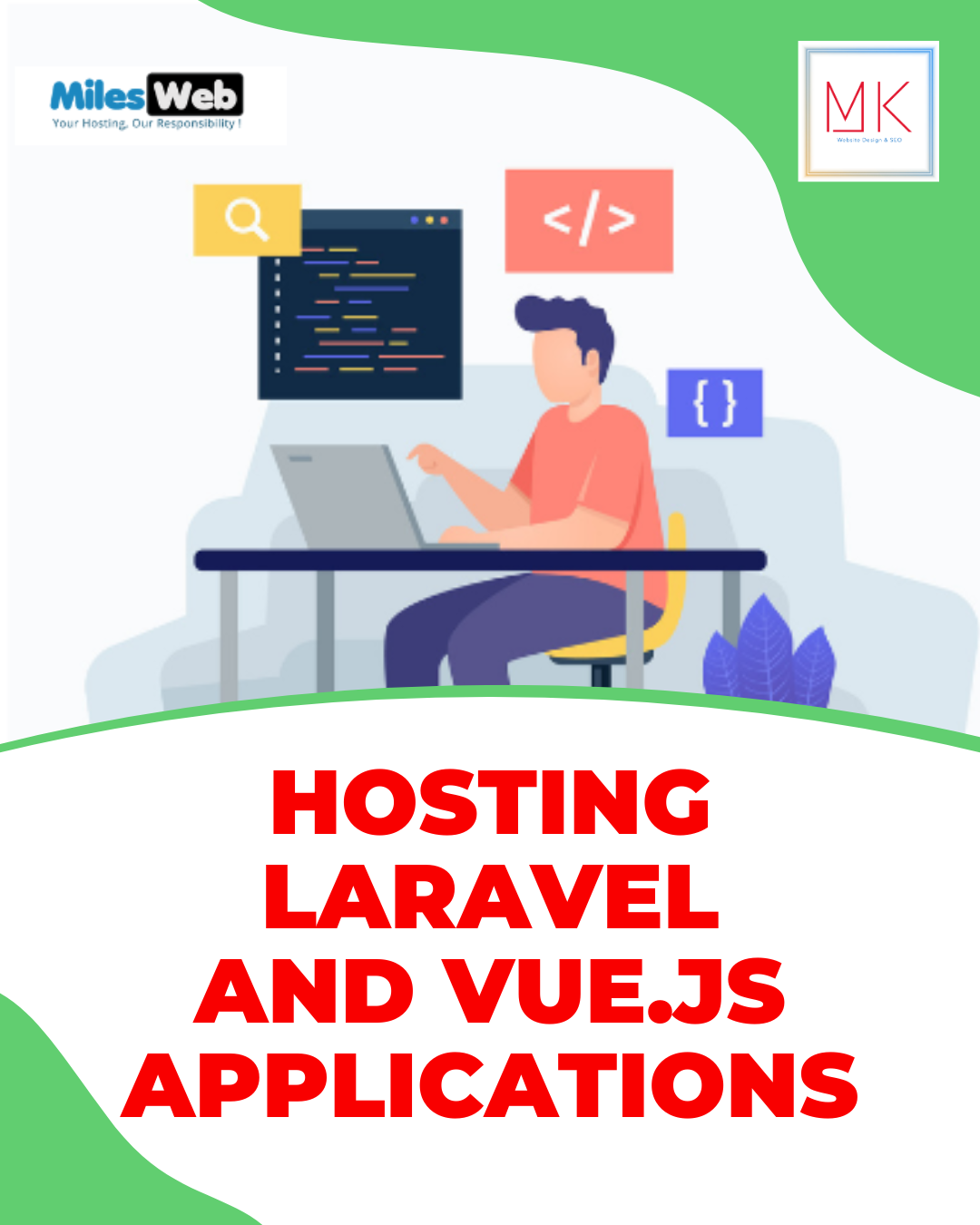Developing web applications often involves working with multiple technologies. Laravel and Vue.js are two popular frameworks used for building dynamic and interactive web applications. Laravel is a PHP-based framework that provides a robust backend infrastructure, while Vue.js is a JavaScript framework used for building user interfaces. In this blog post, we will explore the integration and deployment strategies best hosting for laravel and Vue.js applications, enabling you to efficiently deploy your projects.
Understanding Laravel and Vue.js
Before we dive into nodejs hosting and deployment strategies, let & briefly understand Laravel and Vue.js. Laravel is an open-source PHP web framework known for its elegant syntax and extensive feature set. It follows the Model-View-Controller (MVC) pattern, making it easy to develop and maintain web applications.
On the other hand, Vue.js is a JavaScript framework for building user interfaces. It focuses on the view layer of an application and provides reactive components that can be seamlessly integrated into existing projects. Vue.js enables developers to build interactive interfaces with ease.
Here’s A Step-By-Step Guide On Integrating Laravel and VueJS
Set up a new Laravel project or use an existing one.
- Install Node.js on your development machine if you haven't already. Node.js is required to run npm (Node Package Manager) commands.
- Install Laravel Mix by running the following command in your project's root directory:
npm install
- Create a new Vue component using Laravel Mix:
npx mix Vue
- This command generates a sample Vue component in the resources/js directory.
- Register the Vue component in your Laravel application. Open the resources/js/app.js file and add the following code:
importVueComponent from './components/VueComponent.vue';
Vue.component('vue-component', VueComponent);
- Compile the assets by running the following command:
npm run dev
- This command compiles the Vue component and other assets into the public directory.
- Use the Vue component in your Laravel views:
<vue-component></vue-component>
Deployment Strategies
Now that we have integrated Laravel and Vue.js, it's time to consider the various deployment strategies for hosting your application.
- Shared Hosting
Shared hosting is an affordable option suitable for small-scale applications. In shared hosting, multiple websites share the same server resources. While it's easy to set up, shared hosting might not provide the necessary performance and scalability for complex applications.
- Virtual Private Server (VPS) Hosting
VPS hosting offers more control and resources than shared hosting. With a VPS, you have dedicated resources, including CPU, RAM, and storage. This option allows you to scale your application more effectively while maintaining cost-efficiency.
- Cloud Hosting
Cloud hosting provides flexibility and scalability by leveraging multiple servers. It ensures high availability and allows you to scale your application on-demand. Popular cloud hosting providers like AWS, Google Cloud, and DigitalOcean offer easy-to-use platforms to deploy Laravel and Vue.js applications.
Which Kind of Web Hosting Services Are Helpful for Laravel and Vue.js Applications?
There are specific web hosting plans to host Laravel and Vue.js applications. If you were to find the best brand to host Laravel applications, it has to be MilesWeb.
Reliability of a service provider is determined by the quality of features they deliver to their clients.
Guaranteed uptime, managed support 24×7 and higher web hosting storage are some of the top-notch features that a client must look before signing up with a web host.
Laravel is a powerful PHP framework, while Vue.js is a popular JavaScript framework. Both frameworks have specific requirements that need to be considered when selecting a hosting provider. In this blog post, we will explore the different types of web hosting services that are beneficial for Laravel and Vue.js applications.
- Shared Hosting
Shared hosting is a cost-effective option where multiple websites share the same server resources. While shared hosting can work for small-scale applications, it may not be suitable for Laravel and Vue.js applications that require higher performance and resources. Shared hosting often has limitations in terms of server configurations and may not provide the necessary environment for these frameworks.
- Virtual Private Server (VPS) Hosting
VPS hosting offers a dedicated virtual environment within a shared server. It provides more control and flexibility compared to shared hosting. With VPS hosting, you can configure the server to meet the specific requirements of Laravel and Vue.js applications. It allows you to install custom software, enable extensions, and allocate resources according to your needs. VPS hosting is generally a better choice for medium-sized applications with moderate traffic.
- Dedicated Server Hosting
Dedicated server hosting provides an entire physical server dedicated solely to your Laravel and Vue.js applications. This type of hosting offers maximum control, performance, and security. You have complete freedom to customize the server environment, install any required software, and optimize it specifically for your application. Dedicated server hosting is recommended for large-scale applications with high traffic and resource-intensive requirements.
Conclusion
Choosing the right web hosting service is essential for hosting Laravel and Vue.js applications. While shared hosting can be a cost-effective choice for smaller projects, it may not provide the necessary performance and flexibility required by these frameworks.
VPS hosting offers a balance between affordability and customization options, making it suitable for medium-sized applications. Cloud hosting is highly scalable, ensuring optimal performance even during traffic spikes. Finally, dedicated server hosting provides maximum control and performance, making it ideal for large-scale and resource-intensive applications.
Consider your application's specific requirements, expected traffic levels, and budget when selecting a web hosting service.













